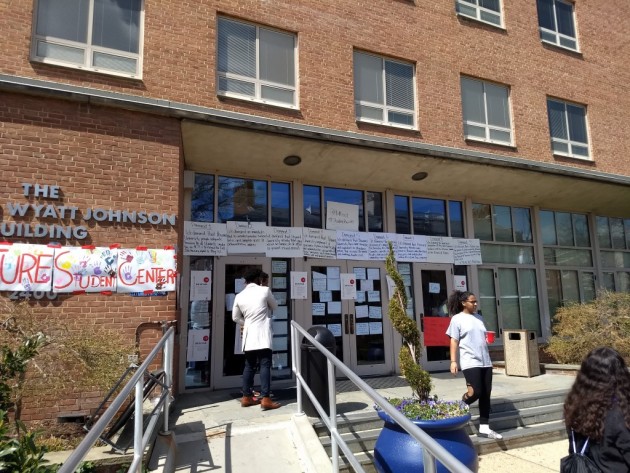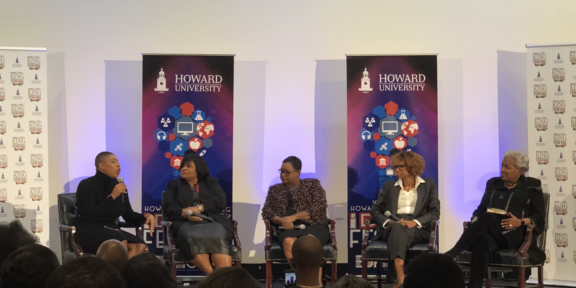The world is rallying around Haiti after an earthquake tore through the country last Tuesday, disrupting the lives of millions and leaving more than 70,000 dead, according to estimates by Haitian officials. Before victims had a chance to rebound from the 7.0 magnitude quake, a series of aftershocks measuring up to 6.1 on the Richter scale rocked the country a week later.
According to Haitian officials, Haiti, the poorest country in the Western Hemisphere, does not have the resources to recover from the devastation without outside aid. Raymond Joseph, Haiti’s ambassador to the United States, made an international appeal for a response to this “catastophe” that is at least similar to the recovery efforts after four back-to-back hurricanes swept his homeland in 2008.
President Obama today pledged $100 million toward the recovery effort. “I have directed my administration to respond with a swift, coordinated and aggressive effort to save lives,” Obama said during a news conference Wednesday morning.
“The people of Haiti will have the full support of the United States in the urgent effort to rescue those trapped beneath the rubble, and to deliver the humanitarian relief — the food, water and medicine — that Haitians will need in the coming days.”
Secretary of State Hillary Rodham Clinton cancelled her trip in Asia to coordinate what she described as “full assistance” from the United States. Several organizations have deployed emergency rescue teams, including Washington-area responders.
Locally, residents and students gathered to pool their efforts at Howard University, Busboys and Poets in the U Street Corridor and other locations, as well as attend a candlelit vigil outside the Haitian embassy. (See “How You Can Help,” below.)
The 7.0 magnitude earthquake hit Haiti, six miles from Port-au-Prince, the nation’s capital, on Tuesday around 5 p.m. Confirmed deaths include Msgr. Joseph Serge Miot, the archbishop of Port-au-Prince, who was found dead in the rubble of the archdiocese, 16 United Nations workers and three Americans.
Eight U.S. embassy employees were injured, four seriously. Three were airlifted to a Guantanamo Bay medical facility, Gene Gray, a National Security Council official who deals with the Caribbean and Central America, said during a conference call on the White House recovery efforts.
“This is a moment when substance fails you,” Patrick Gaspard, director of the Office of Political Affairs, said of the archbishop’s death. “Symbolism carries great work.” Gaspard, who was also on the conference call, is a former labor leader who was born in the Congo to Haitian parents.
Untold numbers of Haitians are missing. Marcelle Darbouze, American citizen, Haitian-born nurse, now an American citizen in Florida, is awaiting word about her siblings in Haiti. She spoke momentarily to a cousin who was almost struck by a rock.
One frustration for Darbouze and others who are trying to locate family and friends is the lack of communication and transportation access because of the earthquake.
“Three major cell phone companies service the island, and only one of them seems to be working with consistency,” Gray said. Those in search of loved ones can call (888) 407-4747 for assistance.
Flights are also limited at the airport, and the coast guard is managing emergency air traffic control, he added. “There is extensive damage to the tower and the terminal.”
Several homes, the National Palace and other government buildings have collapsed as a result of the quake and more than 13 aftershocks with magnitudes of above 4.5. According to the U.S. Geological Survey, this is the most violent earthquake to strike in a century.
“The damage from the earthquake appear to be in the Port-au-Prince area, surrounding areas but not island wide,” Gray explained. The Disaster Assistance Response Team (DART) is assessing the damage and will be the main coordinator of relief efforts in Haiti.
Listeners on the conference call, which included politicians, social service workers, educators and journalists, also expressed concern about housing and education for earthquake victims as well as the fate of an estimated 30,000 Haitians who are up for deportation. Haitian advocates also recommended that the United States expedite enrollment for children and grant Temporary Protected Status (TPS) along with work permits to adults living here.
“Please appreciate the conversation around TPS is one that certainly informs our thinking as we begin to take in the full scope of the disaster on the ground,” Gaspard said.
“We have had a several months long review of our Haiti policy,” he added, acknowledging that it “obviously has to be radically transformed.” So far, the Department of Homeland Security has suspended deportations, which also occurred after the 2008 hurricanes.
“With just a few hundred miles of ocean between us and a long history that binds us together, Haitians are neighbors of the Americas and here at home,” President Obama said during his news conference. “So we have to be there for them in their hour of need.”
HOW YOU CAN HELP
With the widespread devastation from the earthquake, government and relief officials recommend that donating money is the best way to help Haiti until DART can fully access what is really needed.
“It is less than helpful now to have massive amounts of uncoordinated relief efforts in Haiti,” political affairs director Patrick Gaspard said. “While the sentiment is one that we all embrace, we need to recognize the lack of capacity on the ground now.”
For more information on how to get involved, call the Center for International Disaster at (703) 276-1914 or visit the Web site for InterAction, the largest coalition of U.S.-based international nongovernmental organizations (NGOs) at interaction.org.
“It is odd to have this conflict in your heart,” Gaspard said, “to have this tremendous sense of urgency, but at the same time you have to wait until you have the information.”



